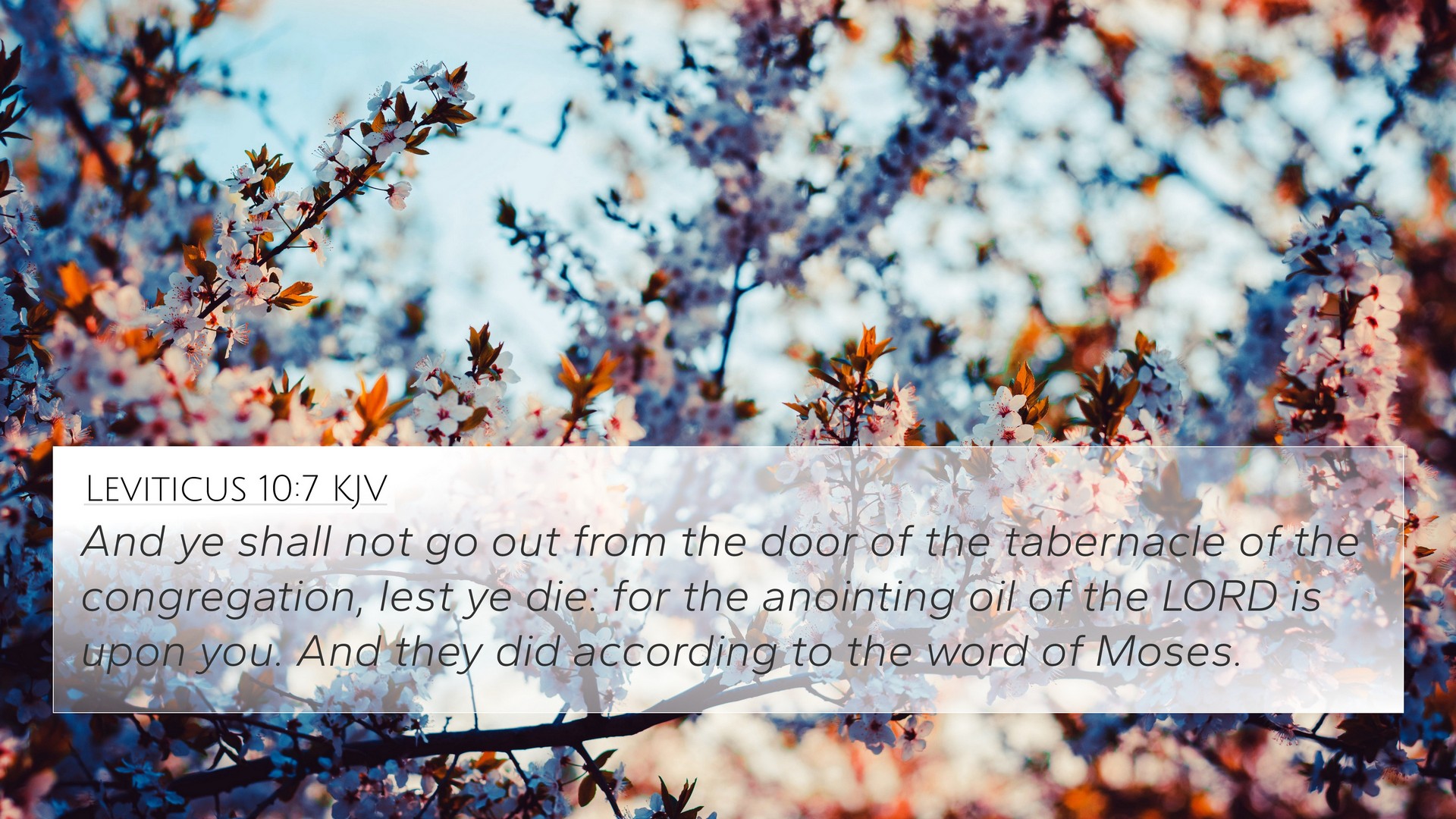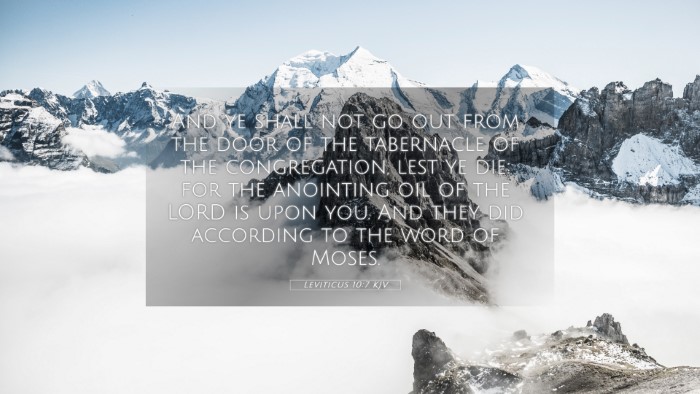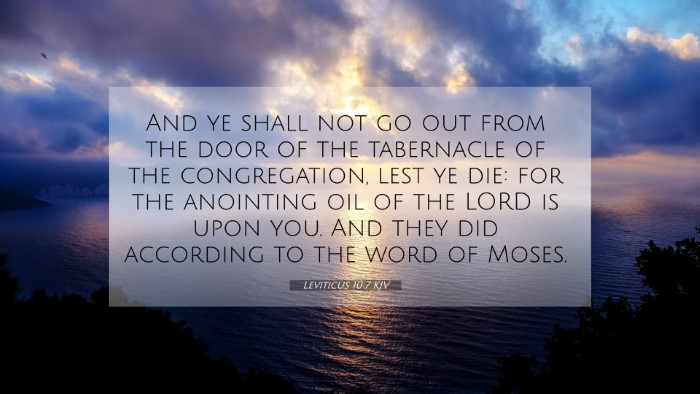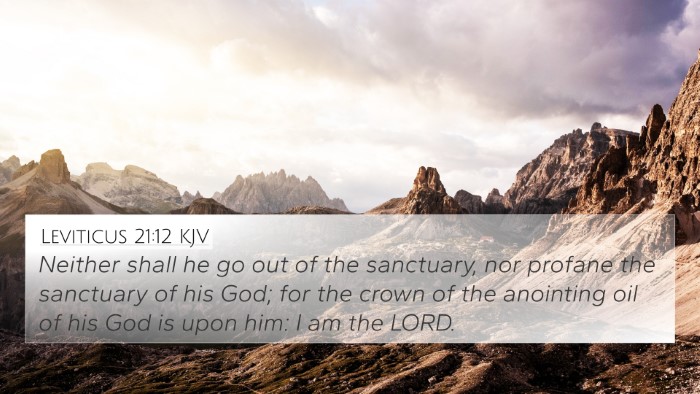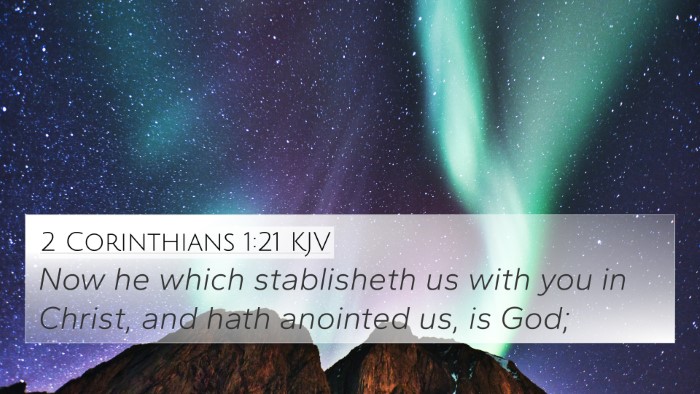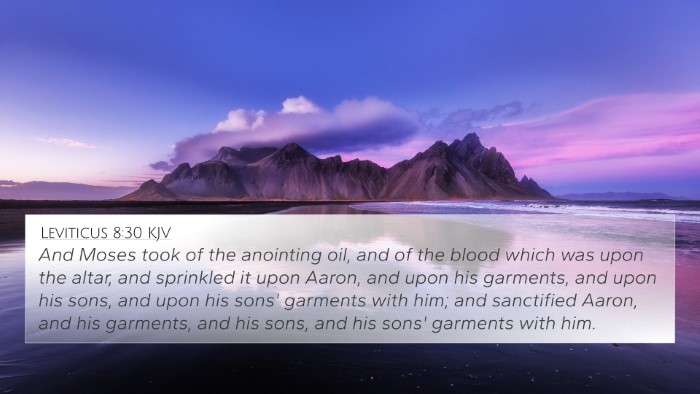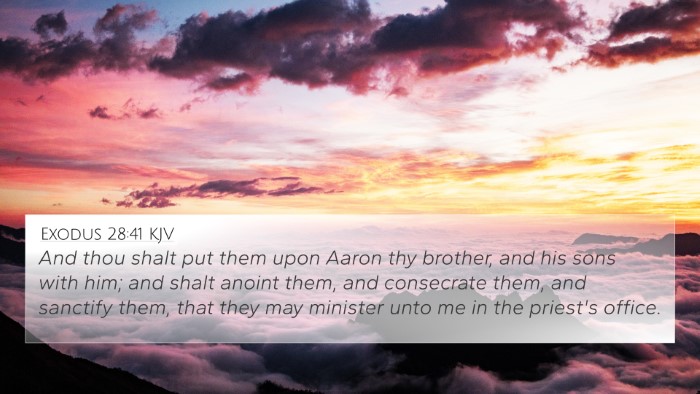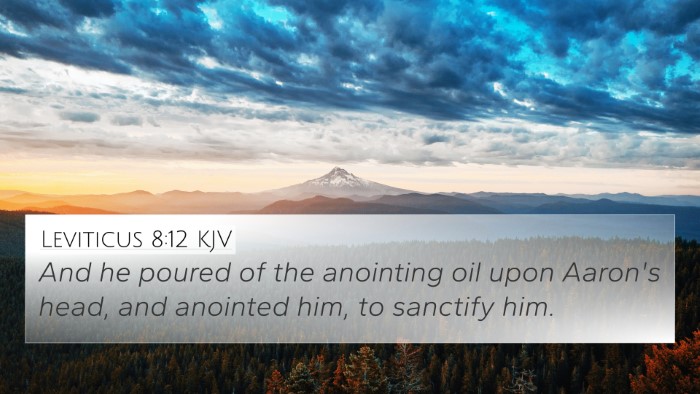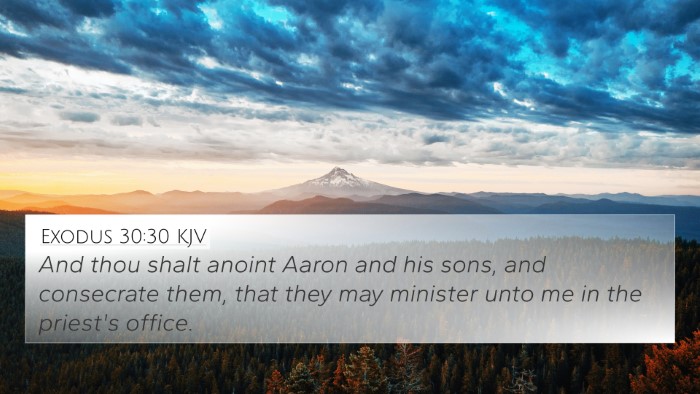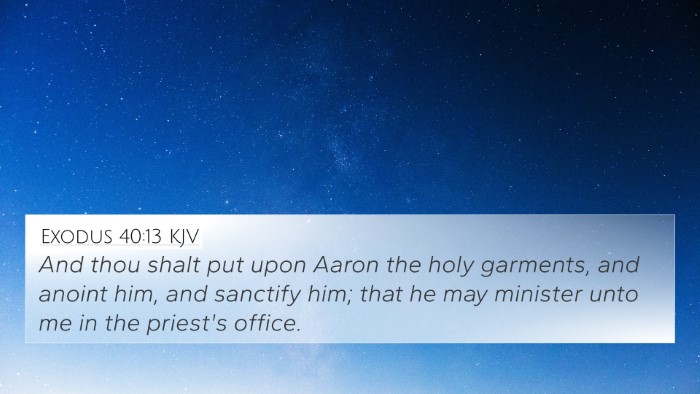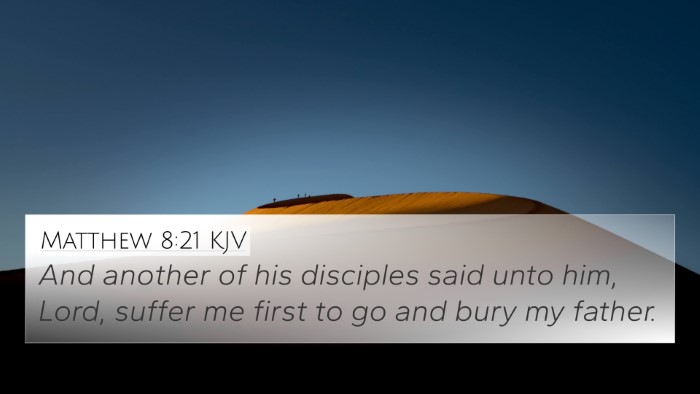Understanding Leviticus 10:7
Bible Verse: Leviticus 10:7 - "And you shall not go out from the door of the tabernacle of meeting, lest you die: for the anointing oil of the LORD is upon you. And they did according to the word of Moses." (NKJV)
Summary and Analysis
Leviticus 10:7 issues a significant directive to the priests, emphasizing their separation and the seriousness of their role in the service of God. Understanding this verse involves several thematic elements reflected in the commentaries of notable theologians.
Insights from Public Domain Commentaries
-
Matthew Henry's Commentary:
Henry emphasizes the gravity of the priestly duties and the sanctity of the priesthood. The command reflects God's holiness and the necessary obedience that the priests must exhibit in their service. By remaining in the tabernacle, they acknowledge the continuous presence of God and their responsibility under His anointing, reflecting a crucial connection with divine authority.
-
Albert Barnes' Notes:
Barnes connects this directive to the broader theme of holy living and separation from the secular world. He notes that not departing from the tabernacle symbolizes the need for constant vigilance and dedication to God’s commands. This commitment underscores the priests' role as mediators between God and the people, enhancing their accountability and purpose within the community.
-
Adam Clarke's Commentary:
Clarke points out the cultural and spiritual implications for the priesthood. He indicates that the anointing oil signifies the empowerment of the Holy Spirit, providing the necessary strength to fulfill their duties. Clarke highlights the fatal consequence of neglecting God’s commands, illustrating the severe repercussions of disobedience for leaders within the faith community.
Bible Cross-References
This verse connects with various other Bible passages that provide deeper insight and context. Here are several cross-references to consider:
- Exodus 29:9: Discusses the consecration of the priests, emphasizing their holy status before God.
- Leviticus 21:10-12: Describes the responsibilities and restrictions placed upon the high priest, showcasing the dignity and honor of the office.
- Numbers 18:7: Reiterates the priest's role and the seriousness of their duties, linking their work to divine service.
- Hebrews 5:1: Connects the priesthood to Christ, highlighting the spiritual sacrifice and representation of the people before God.
- 1 Peter 2:9: Draws upon the concept of a royal priesthood, inviting believers to embrace their identity in relation to God.
- Romans 12:1: Encourages believers to present themselves as living sacrifices, linking the priestly duties to Christian living.
- Revelation 1:6: Affirms that believers are made into a kingdom and priests, echoing the themes of sacred service and commitment.
Thematic Connections
The themes in Leviticus 10:7 can be enriched by understanding its placements within the larger narrative of the Bible:
- Consecration: The call to holiness in ministry is echoed throughout Scripture, encouraging a life set apart for divine service.
- Divine Presence: The necessity to remain within the boundaries of God’s presence is a consistent theme in understanding God’s holiness.
- Obedience and Authority: The connection between obedience to God’s directives and the effective ministry is illustrated through various Scriptural narratives.
Applications for Today
The study of Leviticus 10:7 reveals important principles that are applicable in contemporary spiritual contexts. Here are some methods for applying the verse's meanings:
- Spiritual Vigilance: Just as the priests were to remain in the tabernacle, believers today are encouraged to stay connected to God through prayer and study of His Word.
- Understanding Calling: Recognizing one’s role within the church and community as a form of ministry can reinforce the importance of obedience to God’s calling.
- Holistic Worship: Viewing life as a continuous act of worship reflects the commitment that the priests were called to exhibit, suggesting that all actions can be sacred.
Conclusion
Leviticus 10:7 serves as a crucial reminder of the sacred responsibilities that accompany spiritual leadership. Through detailed cross-referencing and thematic analysis, the principles contained in this verse can inform modern believers about the seriousness of their calling and the necessity of maintaining a close relationship with God.
